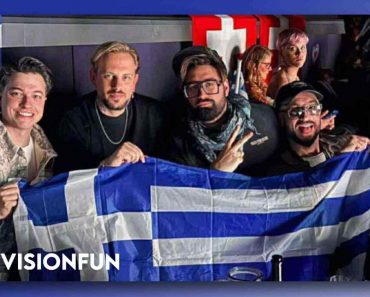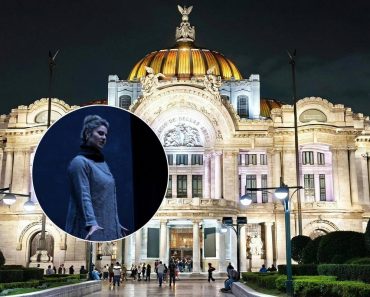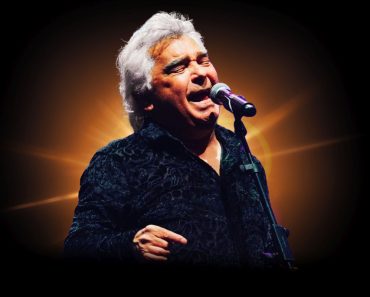As the war in Gaza approaches its two-year mark, the debate over the conflict has taken center stage in the music world. More artists are waving Palestinian flags, chanting slogans or accusing Israel of genocide. Those who stay silent face growing pressure to pick a side.
The pro-Palestininan Boycott, Divestment and Sanctions movement, or BDS, has ramped up calls for boycotts for music acts that don’t speak out on Gaza and for promoters with any ties to the Israeli government or business. This week, BDS called on supporters to boycott Radiohead’s newly announced tour of Europe, citing the U.K. band’s show in Tel Aviv in 2017 and its guitarist Jonny Greenwood’s links to an Israeli musician.
The music industry has long been a stage for activism: anti-Vietnam War anthems in the 1960s, LiveAid against famine in Africa in the 1980s and solidarity concerts for Black Lives Matter or the war in Ukraine.
But unlike other recent social and political causes, where solidarity was brief and mostly noncontroversial, the war in Gaza has become a far bigger, and more divisive, cause célèbre, creating friction among fans, sponsors and artists.
As the war drags on, and following images of widespread hunger in Gaza in recent months, the pressure on artists to speak out has grown from both pro-Palestinian activists and many fans.
The global live-music business generated nearly $35 billion in revenue last year, with the U.S. and Europe by far the largest markets, and is expected to grow to $67 billion by 2035, according to Goldman Sachs. But festival organizers worry that political polarization could damp growth.
American pop band Imagine Dragons had publicly said they wanted to stay apolitical, but in June whipped out a Palestinian flag on stage at a concert in Milan after months of pressure from fans. British singer Charli XCX led chants of “Free Palestine” while on stage at Primavera Sound Porto festival in Portugal this summer after she had faced an online backlash for not speaking up.
“All artists have that calculus in their mind of how much do I protest in this space?” said Alexander Cannon, professor of ethnomusicology at England’s University of Birmingham.
On social media, anonymous accounts such as Zionists in Music track pro-Israel statements, while the website Reverse Canary Mission catalogs musicians who haven’t spoken out against Israel’s actions in the Gaza war.
Some acts have gained notoriety for their comments about the war.
At Britain’s storied Glastonbury Festival in June, the headlines were less about the music and more about the pro-Palestinian stance taken by dozens of acts. The most controversial moment came when English rap duo Bob Vylan shouted “Free, free Palestine,” before chanting “Death, death to the IDF,” referring to the Israel Defense Forces.
The fallout was immediate. U.K. Prime Minister Keir Starmer and the Israeli Embassy in the U.K. condemned the comments. The BBC, which beamed the scenes live, later apologized. The act was dropped from its agency and several festival slots.
Northern Irish rap group Kneecap, who often pepper their performances with pro-Palestinian and anti-Israel slogans, canceled their forthcoming tour of the U.S. amid continuing legal troubles in the U.K. One of the group’s members faces terrorism charges in the U.K. for allegedly displaying a Hezbollah flag during a concert last year. The U.K. designates Hezbollah—the Lebanon-based, Iran-backed political and militant group—as a terrorist organization.
The pressure to speak out about Gaza extends backstage. American rapper Azealia Banks recently pulled out of two U.K. festivals, Boomtown and Maiden Voyage, saying organizers pressured her to make “free Palestine” statements onstage.
“They’re both basically trying to extort me—by insinuating that I need to say I support Palestine or they will drop me from the gig,” Banks wrote on X. Boomtown Festival denied dictating performers’ personal views and Maiden Voyage didn’t reply to a request for comment.
On the flip side, other artists are being iced out. Israeli-Iranian singer Liraz Charhi says she lost shows for refusing to post “Free Palestine” on social media. Two shows by Greenwood, the Radiohead guitarist, and Israeli musician Dudu Tassa were canceled earlier this year following pressure from BDS. It cited two shows by Greenwood and Tassa in Israel in 2024 and 2025, while Tassa played for Israeli soldiers in late 2023, shortly after the Oct. 7 Hamas-led massacre. In Bristol, Jewish band Oi Va Voi had a concert canceled after complaints over album art featuring singer Zohara surrounded by watermelons—a fruit linked to the Palestinian flag. The group called it discrimination against her Israeli identity.
Artists have differed in their response to the war. A-listers including Dua Lipa, Coldplay, Billie Eilish and Olivia Rodrigo have released statements about the growing humanitarian crisis. Others, such as Taylor Swift, have made no public comment about the Israeli-Palestinian conflict, attracting ire from at least some fans.
Caught in the crossfire, some artists are vying for middle ground. In May, Radiohead frontman Thom Yorke denounced Israel’s government as extremist and cynical, and said its offensive in Gaza had long since passed the excuse of self-defense. At the same time, he criticized Hamas as “equally cynical,” and said the simple refrain of “Free Palestine” didn’t ask tough questions about the militant group’s motivation for the attacks of Oct. 7, 2023. Some on social media panned the statement, and BDS said it “whitewashed genocide.”
Yorke said the backlash has taken “a heavy toll” on his mental health. “Social media witch-hunts (nothing new) on either side pressurizing artists and whoever they feel like that week to make statements etc do very little except heighten tension, fear and oversimplification of what are complex problems,” he wrote.
Members of U2 similarly released statements in August, in which both Israel and Hamas were criticized. Many in Ireland, which has long had higher levels of support for Palestinians than many other Western countries, slammed the band for not criticizing Israel more harshly. “U2 break near silence and express support for Gaza, but is it too late?” asked the Irish Independent newspaper. Irish singer Mary Coughlan called U2’s statement “putrid and pathetic.”
But others saw the band’s stance as a rare moment of nuance on a complicated issue. “It stands in sharp contrast to the eliminationist incitement coming from the vast majority of the entertainment sector,” Jon-Erik Storm, an American-Israeli lawyer, wrote for the Times of Israel.
The highly charged politics makes for some uncomfortable moments. During a Coldplay concert this week in London, singer Chris Martin invited two fans onstage and asked where they were from. When they replied Israel, and were greeted with a mixture of boos and cheers from the audience, Martin said: “I’m very grateful that you’re here as humans. We are treating you as equal humans on Earth, regardless of where you come from.”
For many bands, it is easier to stay away from politics if you aren’t currently playing live on tour or turning up at music festivals, especially those in Europe, where pro-Palestinian sentiment generally runs higher than in the U.S.
The Night Time Industries Association, which champions the live music industry in the U.K., said that extreme political polarization could lead to reduced profits as audiences might be alienated. “If customers are unhappy, ticket sales might be impacted,” CEO Michael Kill said in an interview.
Write to Anvee Bhutani at anvee.bhutani@wsj.com and Roya Shahidi at roya.shahidi@wsj.com






